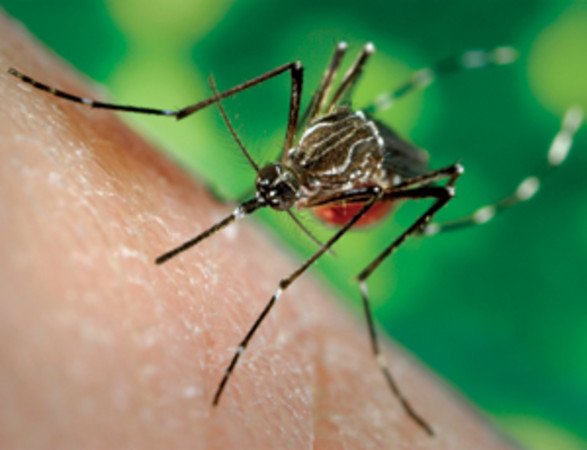Zika Outbreak: Virus Likely to Spread Across Americas
The World Health Organization (WHO) has warned that Zika virus is likely to spread across nearly all of the Americas.
The Zika virus, which causes symptoms including mild fever, conjunctivitis and headache, has already been found in 21 countries in the Caribbean, North and South America.
It has been linked to thousands of babies being born with underdeveloped brains and some countries have advised women not to get pregnant.
No treatment or vaccine is available.
The Zika virus was first detected in 1947 in monkeys in Africa. There have since been small, short-lived outbreaks in people on the continent, parts of Asia and in the Pacific Islands.
It has spread on a massive scale in the Americas, where transmission was first detected in Brazil in May 2015.
Large numbers of the mosquitoes which carry the virus and a lack of any natural immunity is thought to be helping the infection to spread rapidly.
Zika is transmitted by the bite of Aedes mosquitoes, which are found in all countries in the region except Canada and Chile.
In a statement, the Pan American Health Organization (PAHO), the regional office of the WHO, said: “PAHO anticipates that Zika virus will continue to spread and will likely reach all countries and territories of the region where Aedes mosquitoes are found.”
PAHO is advising people to protect themselves from the mosquitoes, which also spread dengue fever and chikungunya.
It also confirmed the virus had been detected in semen and there was “one case of possible person-to-person transmission” but further evidence was still needed.
Around 80% of infections do not result in symptoms.
However, the biggest concern is the potential impact on babies developing in the womb. There have been around 3,500 reported cases of microcephaly – babies born with tiny brains – in Brazil alone since October.
PAHO warned pregnant women to be “especially careful” and to see their doctor before and after visiting areas affected by the Zika virus.
Colombia, Ecuador, El Salvador and Jamaica last week recommended women delay pregnancies until more was known about the virus.
Although officially PAHO says “any decision to defer pregnancy is an individual one between a woman, her partner and her healthcare provider”.
Prof. Laura Rodrigues, a fellow of the Brazilian Academy of Sciences and from the London School of Hygiene and Tropical Medicine, said some data suggested that up to one-in-fifty babies had birth defects in one of the worst hit areas – Pernambuco state in Brazil.
She said: “Until November we knew nothing, this has caught us by surprise and we’re trying to learn as fast as we can.
“Wherever there is dengue, there is mosquito, then it will spread and not just in Americas I think there is a very real chance it will spread in Asia.”
PAHO advice is to ensure all containers that can hold even small amounts of water should be emptied and cleaned to prevent mosquitoes breeding.
People should protect themselves by using insect repellent, covering up and keeping windows and doors closed.


